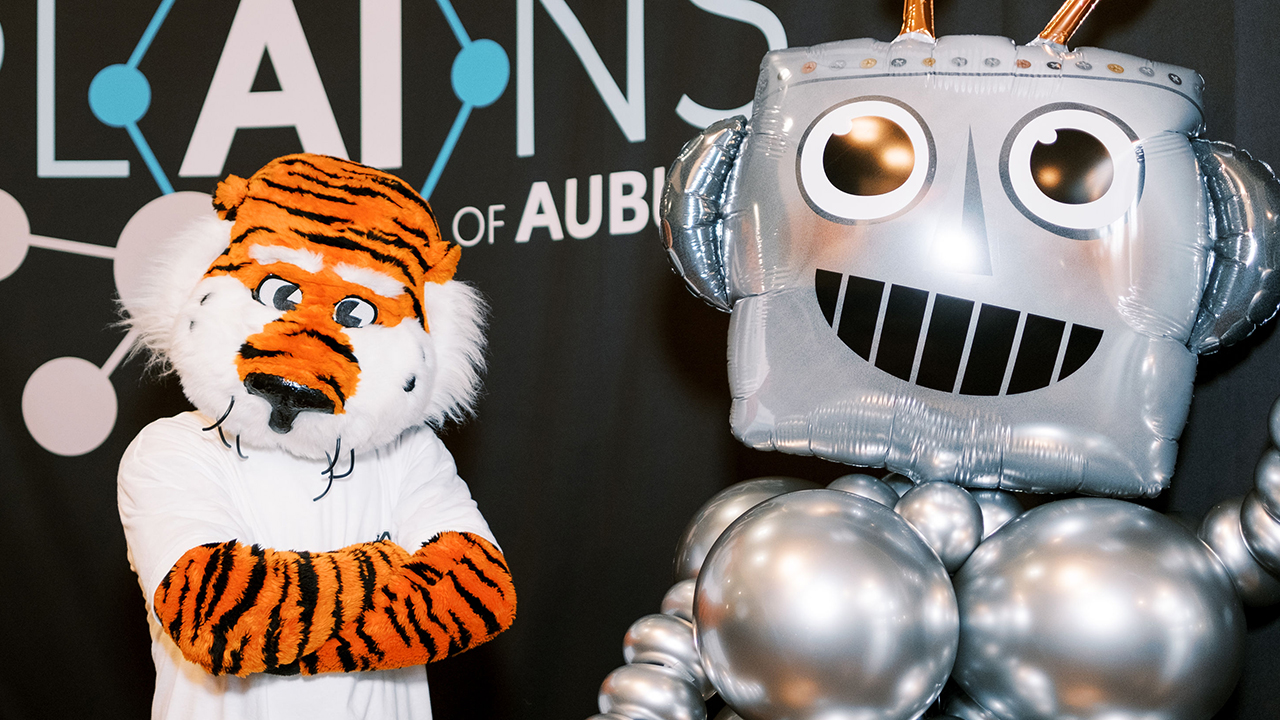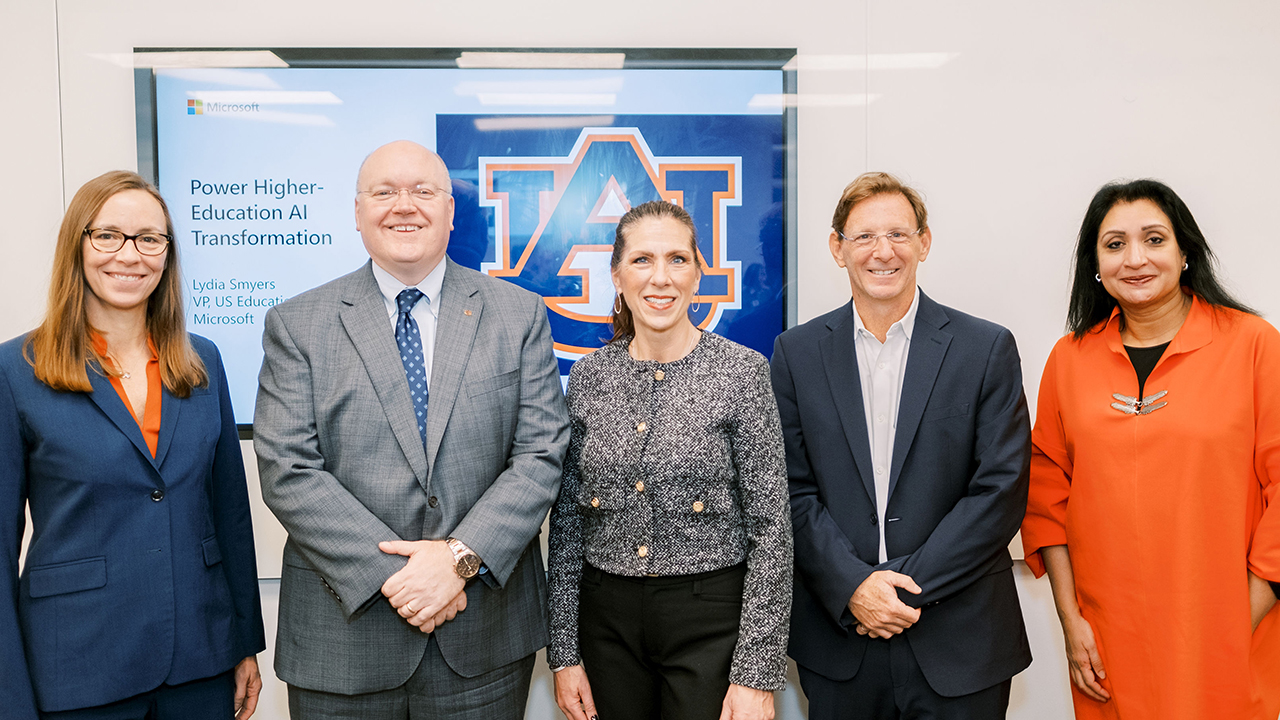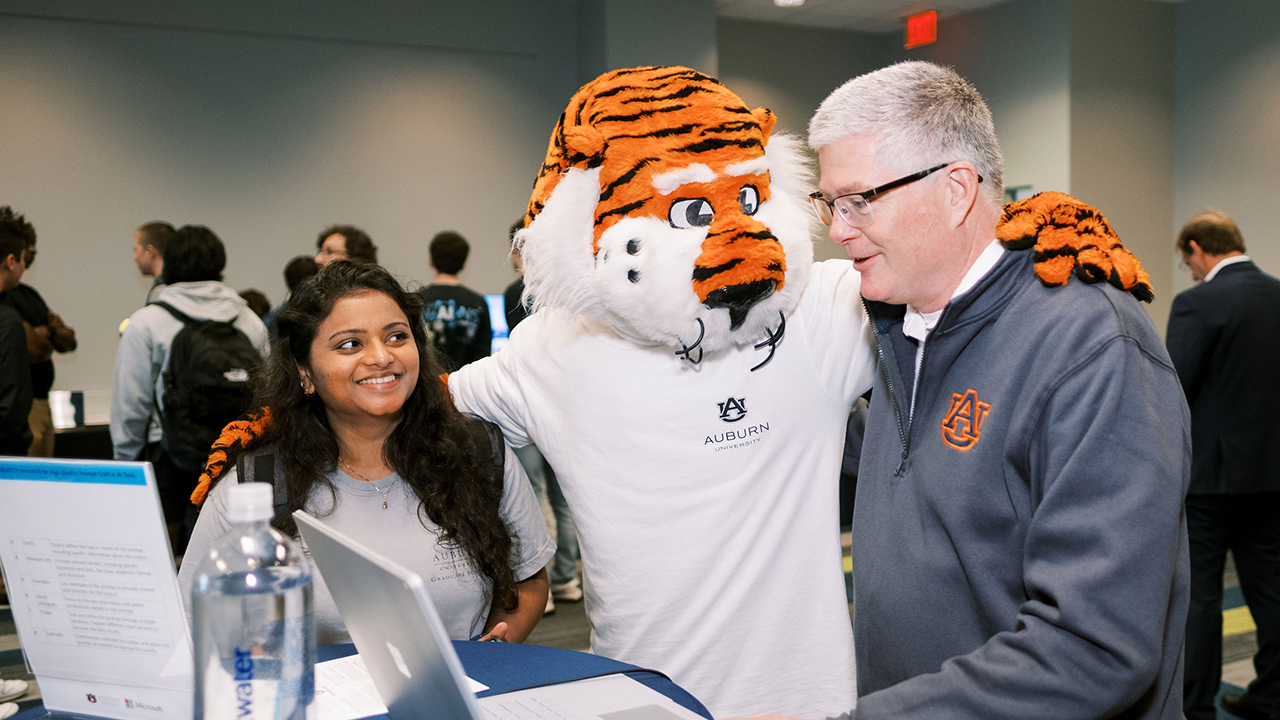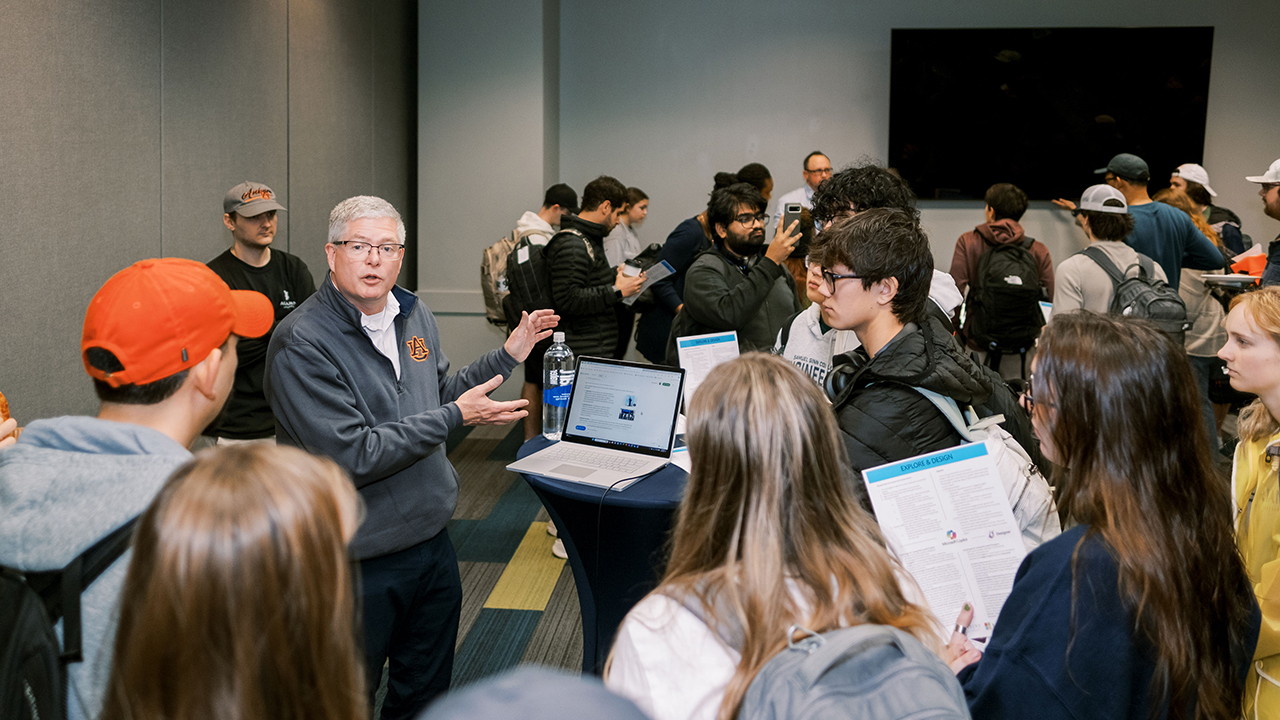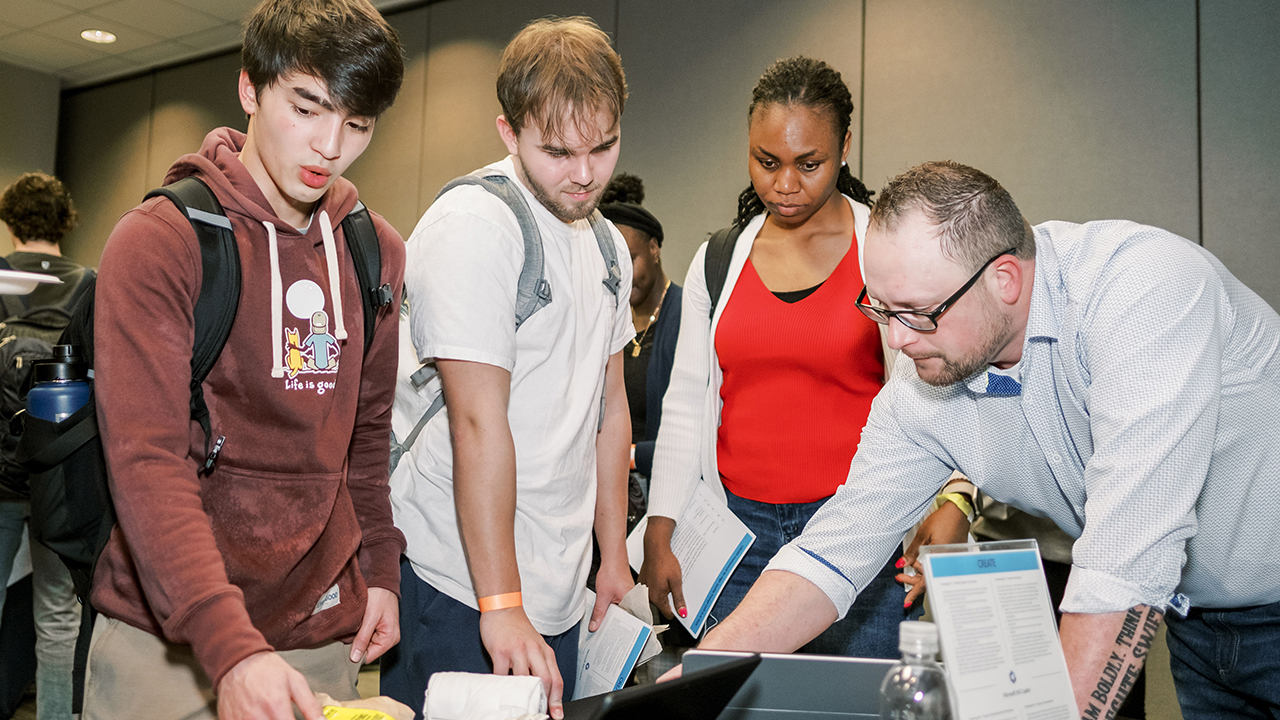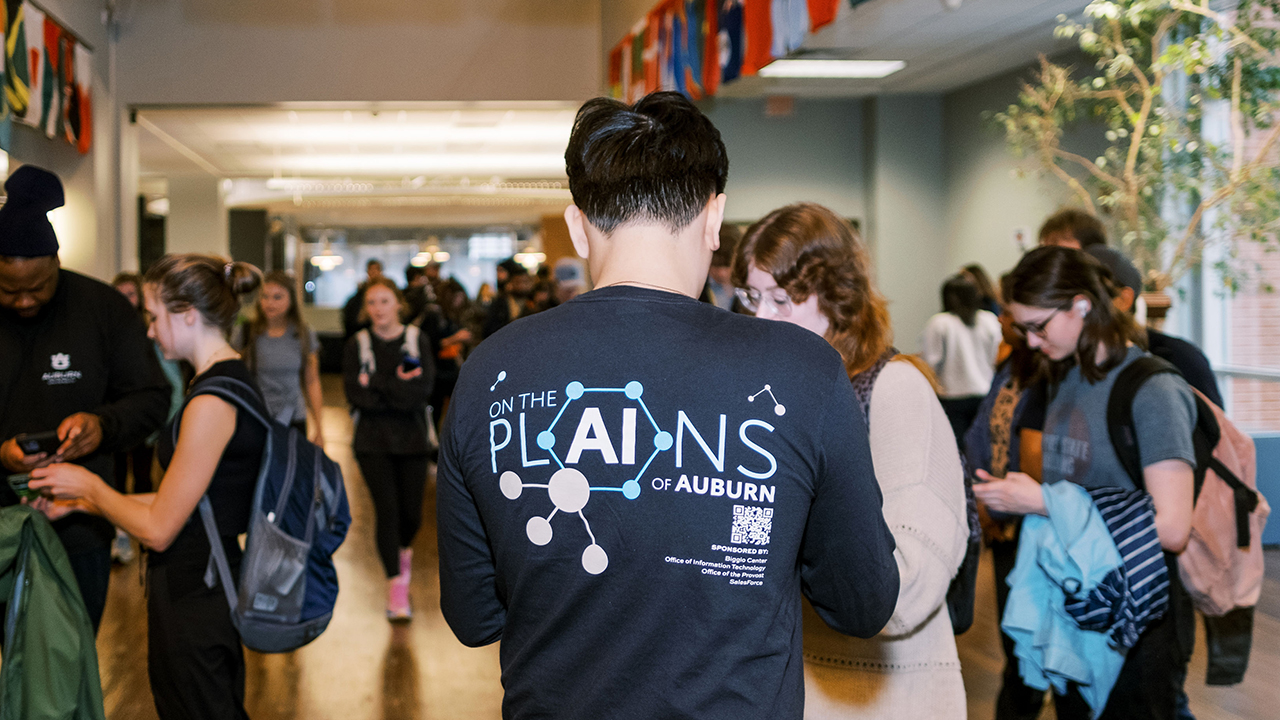content body
When she first heard about Auburn’s AI Day, Auburn junior Maggie Rendleman registered with the hopes of learning more about how AI might impact her future career in public relations.
“AI concepts can be intimidating to students, especially those of us who are not majoring in STEM areas,” Rendleman said. “Seeing the connections between AI and what I’m studying in my classes helps me understand how the technology is already impacting my learning and makes me feel more prepared to enter the job market.”
Rendleman was among more than 800 students, faculty, and staff who participated in the university’s inaugural On the Pl(AI)ns of Auburn: AI Day, on Jan. 25. The daylong event featured seminars, panel discussions and demonstrations focused on the future of AI tools as part of Auburn’s teaching and learning environment, generative AI and other digital creation skills.
Jointly sponsored by the Office of the Provost, the Office of Information Technology and the Biggio Center, the event offered members of the campus community the opportunity to learn from AI professionals, including executives Kelly Kitchens, vice president for Higher Education Sales at Salesforce, and Lydia Smyers, vice president for U.S. Education at Microsoft, two of the university’s key industry partners.
“Collaborations with leaders like Microsoft and Salesforce allow Auburn to continuously prove itself as a leader within the Artificial Intelligence space,” Auburn Provost Vini Nathan said. “We are proud to offer our students, faculty and staff opportunities to advance their knowledge of next-generation technologies that have the potential to greatly benefit the work we do as well as our community, state and nation.”
Featuring seminars that ranged from topics on the responsible use of AI to how to use the technology in the classroom, students engaged with features such as Microsoft Copilot (formerly Bing Chat Enterprise) to assist with resume development and Salesforce Tableau for those looking to better understand the role of data analytics. By bringing together industry leaders and campus stakeholders, attendees engaged in immersive discussions that integrated personal experiences using AI with emerging best practices.
As AI continues to impact students both in the classroom and beyond, the event offered students an opportunity to hear from industry professionals as they prepare to enter a workforce that largely relies on AI technology. By showcasing available campus resources, students like Rendleman learned how to leverage AI technologies to better showcase their skills to potential employers.
The daylong event is part of the university’s broader effort to shape how AI supports teaching and learning across higher education. A member of the SEC Artificial Intelligence Consortium, Auburn’s focus on educating faculty led to expanding its course “Teaching with AI @ Auburn” to faculty at all SEC institutions. As one of the first athletic conferences to pledge a collective response to the growing role of AI, Auburn continues to invest resources and develop innovative solutions to integrate AI into higher education.
“We are already ahead of our peers in defining how AI can be integrated into our teaching and learning environment,” Auburn President Christopher B. Roberts said. “As we go forward, it is the responsibility of institutions like Auburn to equip students with AI knowledge and tools while also constructing the ethical frameworks that will help them navigate the complexities that come with it.”
For more information about On the Pl(AI)ns of Auburn: AI Day or Teaching with AI, contact Auburn’s Biggio Center for the Office of Teaching and Learning.



